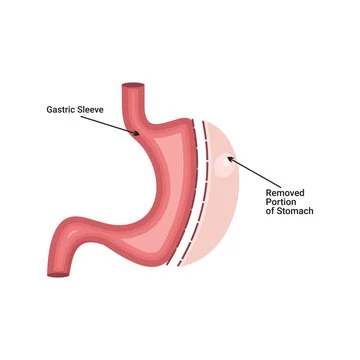In-Depth Overview: Understanding Gastric Sleeve Surgery
An Overview: Understanding Gastric Sleeve Surgery
In the fight against obesity, various bariatric procedures have been developed to help individuals achieve significant and sustainable weight loss. One of the most sought-after methods recently is the Sleeve Gastrectomy, commonly referred to as Gastric Sleeve Surgery. This surgical approach has provided countless individuals with a renewed lease on life, enhancing their health, vitality, and self-confidence. Let’s dive deep into this transformative procedure.
What is Sleeve Gastrectomy?
Sleeve Gastrectomy is a surgical weight loss procedure that involves removing about 80% of the stomach. The remaining part of the stomach is then shaped into a tube-like structure or “sleeve.” This resizing of the stomach limits the amount of food one can eat and helps regulate hunger hormones, thus fostering significant weight loss.
BMI and Its Role in Gastric Sleeve Eligibility
BMI (Body Mass Index) is a calculation derived from an individual’s weight and height, providing an indication of body fatness. Typically, to be considered for Gastric Sleeve Surgery, an individual’s BMI should be 40 or higher. However, those with a BMI between 35 and 40 may also qualify if they suffer from weight-related health issues, such as type 2 diabetes or hypertension. Given the drastic nature of this surgery, it’s essential that candidates meet specific criteria to ensure optimal outcomes and patient safety.
The Recovery Process
Recovery from Sleeve Gastrectomy is a staged process. Some people may feel a slight ache after surgery, which is relieved by taking medication to ease the pain. An initial liquid diet is followed by a transition to soft foods, followed by a normal but controlled diet after a few weeks.
Importantly, long-term success post-surgery also hinges on lifestyle changes. Regular physical activity, a balanced diet, and routine check-ups play a crucial role in ensuring the maintenance of weight loss and the early detection of potential complications.
Why is Gastric Sleeve Surgery More Affordable in Turkey?
An intriguing development in the realm of bariatric surgery is the rising prominence of Turkey as a medical tourism destination. Turkey has made significant strides in healthcare infrastructure, boasting state-of-the-art facilities and world-renowned surgeons specializing in obesity treatments.
Furthermore, the cost of Sleeve Gastrectomy is substantially more affordable in Turkey compared to many Western countries. This cost-efficiency, coupled with Turkey’s rich cultural heritage and scenic beauty, makes it an attractive option for many international patients seeking both top-notch medical care and a unique travel experience.
LEARN MORE: Pros, Cons, and Long-term Outcomes: Sleeve Gastrectomy
Final Thoughts: The War Against Obesity
Obesity isn’t just a cosmetic concern; it’s a serious health condition linked to numerous complications such as heart diseases, diabetes, and even certain cancers. Sleeve Gastrectomy offers a potent weapon in this ongoing battle. While it’s not a one-size-fits-all solution, for many, it’s a life-changing decision that paves the way to a healthier future.
For those seeking quality care without breaking the bank, Turkey emerges as a beacon of hope in the global healthcare landscape. However, as with all medical decisions, it’s essential to consult professionals and conduct thorough research before taking the plunge.









